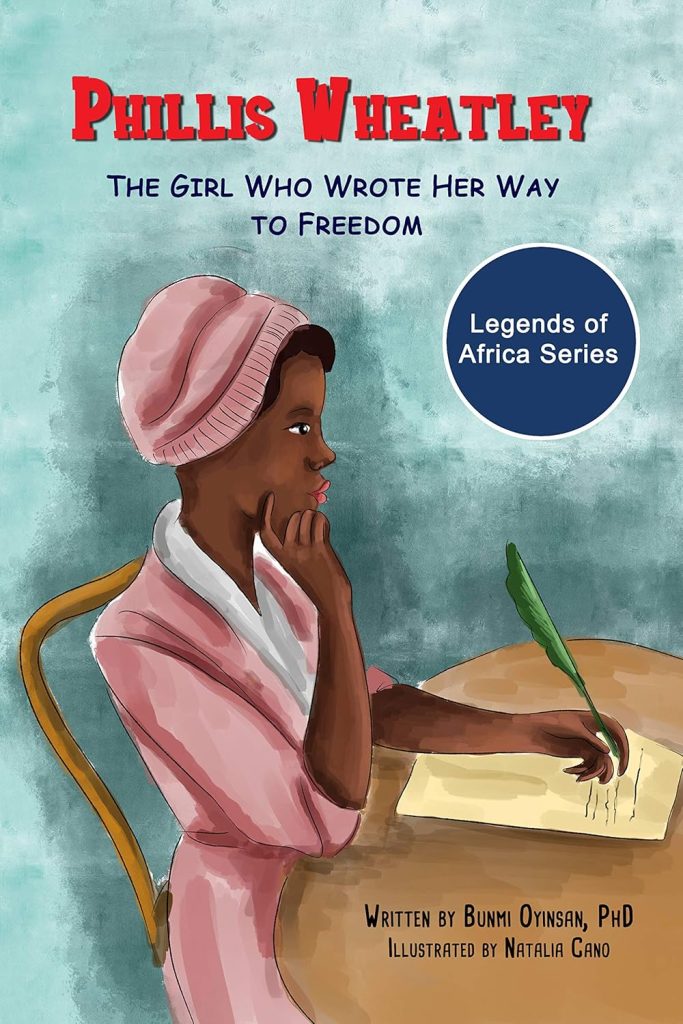
Phillis Wheatley: The Girl Who Wrote Her Way to Freedom (Legends of Africa Series)
(Legends of Africa Series)
One girl. One voice. A pen that broke the chains of silence.
In this beautifully illustrated story, Dr. Bunmi Oyinsan brings to life the extraordinary journey of Phillis Wheatley, a young girl captured from West Africa and enslaved in colonial America. Despite the trauma of displacement, Phillis discovers a deep love for language. Her masters allow her to study, and her brilliance shines through in her poetry. She becomes the first African-American to publish a book of poetry—an astonishing feat in the 18th century.
This fictionalized yet historically grounded retelling introduces young readers to the power of words as resistance. Through Phillis’s struggles, triumphs, and quiet courage, children will learn that stories matter, and that every voice—no matter how young or oppressed—can make history.
Themes of resilience, literacy, and identity make this book ideal for classrooms and homes alike. A tribute to an unsung heroine, it opens the door to meaningful conversations about race, gender, and the pursuit of knowledge.
